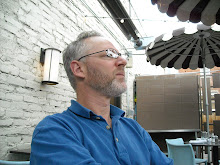The lady who wrote to Amazon that “if I could, I would seriously make out with you right now” got a lot of attention for her blog, so I’m going to try it with the service providers that play a big role in my life:
THP Contractors, if I could, I would seriously rub your feet with warm oil while you luxuriate in rose-scented silk sheets as soothing music and soft lighting complete the ambiance right now.
Overhead Garage Door, if I could, I would seriously go down on one knee, beg you to complete me, and burst into whoops of jubilant laughter mixed with tears of joy when you say “yes” right now.
Vanguard Discount Brokerage, if I could, I would seriously gaze into your eyes for what seems like a lifetime together, then seize you around the waist and kiss you on the mouth, hard, so you feel my passion for ETF’s right now.
Southwest Airlines, if I could, I would seriously plant my seed in you and promise to give our half-Jewish, half-Airbus child all the opportunities we never had when we were small right now.
Earthlink customer support, if I could, I would seriously rip out your intestines, force you to eat them in front of your wife and family, and charge them a thousand gold coins to obtain the smallish portions of your corpse that haven’t yet been eaten by the crows for burial right now.
Constant Contact, if I could, I would seriously get us a couple of tickets to watch what's going to happen to Earthlink, then take you out to dinner in hopes of ending the evening with more than a peck on the cheek right now.

